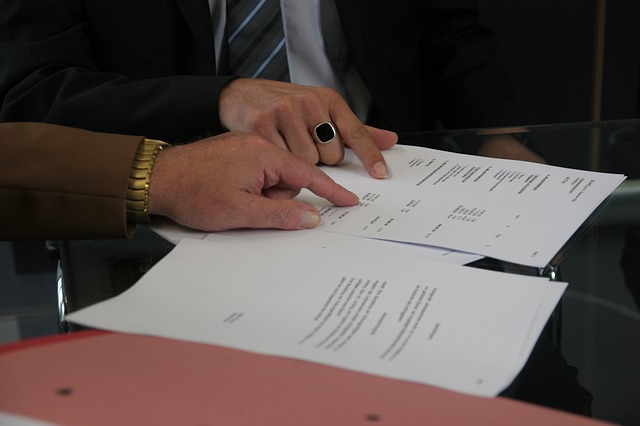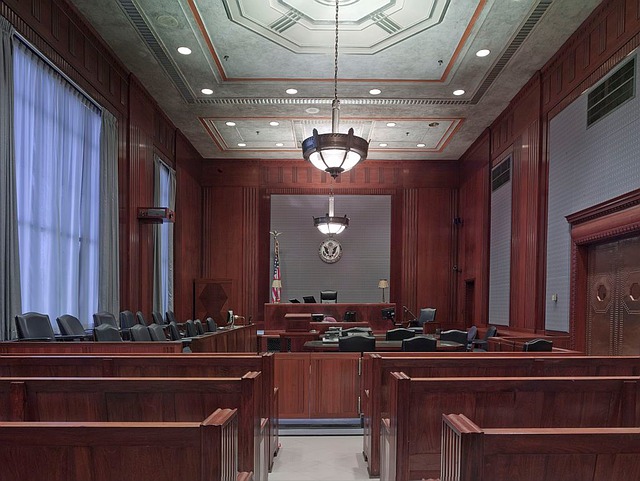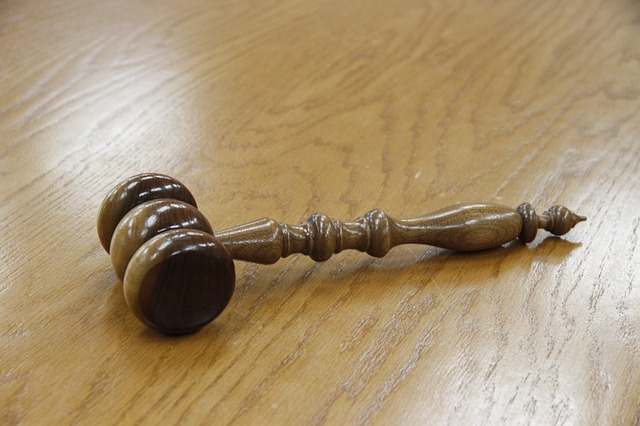Request For Evidentiary Hearing
Employee's Guide to Appeal of a Utah Antidiscrimination and Labor Division Determination and Order
Your request for evidentiary hearing to appeal the Determination and Order issued by the Antidiscrimination and Labor Division (“UALD”) Director begins a formal adjudication process under the Utah Administrative Procedures Act. This process will not be a review of the UALD Determination and Order. Your request begins a new process where you will gather and present evidence to support your discrimination claim. Neither party can rely on the UALD Determination and Order as evidence in the formal adjudication and the judge does not have the evidence that either party gave to UALD.
Other Appeal Options
By filing a Request for Evidentiary Hearing with the Adjudication Division, you have chosen an appeal track that will only consider claims under Utah state law. Federal law remedies, including punitive damages, are not available in this appeal.
At any time before a final order is issued by the Labor Commission in the adjudication process, you may opt out of the formal adjudication process and pursue a federal law remedy by requesting either a Substantial Weight Review by EEOC or a Right to Sue Notice. To do this, submit your request to UALD. If you opt for a different appeal, the formal adjudication will be dismissed.
Do I Need Legal Representation?
You may be represented by an attorney in the formal adjudication. It is up to you to hire and pay the costs of legal representation. The Labor Commission will not provide you legal representation nor will the Labor Commission pay your costs to hire an attorney. Commission rules do not allow non-attorney representatives in the formal adjudication process. If you want representation, it must be with an attorney. The judge is a neutral decision maker and will not assist you with your case either before or during the hearing.
If you choose to represent yourself, you are responsible for familiarizing yourself with the rules that govern the hearing process and the law that supports your claim of discrimination. The judge will require you to meet deadlines and comply with rules and orders. In many cases, you will be at a disadvantage without legal counsel.
What is the Formal Adjudication Process?
The formal adjudication process is similar to the process used by the courts. It gives the parties an opportunity to:
- Outline their claims in writing
- Exchange, gather and disclose information using Utah Labor Commission rules
- File motions to compel the other party’s cooperation with Utah Labor Commission rules
- File motions asking the judge to rule on the case without holding a hearing
- Hold an evidentiary hearing
If the judge decides an evidentiary hearing is necessary to resolve the case, a hearing will be scheduled with three to six months advance notice. Because hearings are scheduled so far in advance, you are expected to be prepared with witnesses and exhibits (if necessary) to support your claim.


What Happens When I File My Request for Evidentiary Hearing with UALD?
When you file a request for evidentiary hearing with UALD, it is sent to the Adjudication Division. A Scheduling Order will be mailed to each party setting deadlines for the adjudication process. The deadlines will be for:
- You to file a written statement that outlines the facts supporting your discrimination claim
- The employer to file an Answer admitting or denying the facts alleged in your statement
- A period of discovery, usually 3-4 months
- Either party, although more often the employer, to file a motion asking for the case to be decided without a hearing (summary judgment)
The parties must abide by the deadlines in the Order. It is then up to both sides to begin exchanging and gathering evidence through discovery.

What is "Discovery"?
“Discovery” is a legal term given to the gathering and exchange of information by the parties to prepare for a summary judgment motion and/or evidentiary hearing. You will be required to meet in person or by telephone with the employer’s attorney to discuss the claim and defenses, possible settlement of the claim and to make initial information disclosures. In this meeting, you must disclose information about people who have information about the claim, documents relevant to the claim in your possession and a computation of the damages you claim.
In computing your claim for damages, please keep in mind that in this appeal, as a state-law-only claim, your damages are limited to reinstatement, back pay and benefits, attorney’s fees and costs. You may also request an order that the employer cease any discriminatory or prohibited employment practice. Punitive damages and front pay are not allowed as they are in a federal law appeal.
You may also be served with written discovery requests that require you to file written answers to questions (“interrogatories”), admit or deny certain facts (“requests for admission”) and produce documents in your possession (“requests for production”). You may also be required to attend a deposition where you will be placed under oath and asked questions with a court reporter present to record the proceeding. Depositions of witnesses may also be taken during this period.
You are required to follow Commission rules that govern the discovery process. Failure to participate in discovery by meeting with the employer’s attorney and/or disclosing required information, failure to file timely and complete responses and/or failure to attend your scheduled deposition may lead to dismissal of your claim.
Motions
A motion is a written request to the judge asking that a request be granted. A motion to dismiss your claim may be filed if you fail to file your statement by the deadline or if your statement does not contain facts to support your claim of discrimination. If you fail to cooperate in the discovery process, the employer’s attorney will file a motion to require your cooperation by order of the Labor Commission.
A summary judgment motion can be filed by either party at the close of discovery to request the judge to rule on the case based upon the evidence gathered. This motion is most often filed by the employer. This motion will contain a statement of facts taken from evidence gathered in discovery, including excerpts from depositions and witness affidavits. When filed by the employer, the motion is asserting that there are no facts of consequence (“material facts”) in dispute and, based upon those facts, the law requires dismissal of your claim. It is important to respond to this motion with supporting affidavits, documentary evidence and legal argument. If the employer’s motion is granted, your case is dismissed without a hearing.
The party not making the motion is automatically given 10 days to file a written response before the judge issues a ruling, unless another deadline has been given by the judge in the Scheduling Order. If you do not agree with what is being requested in the motion, you must file a written explanation of why you disagree.


Evidentiary Hearing

If your statement makes a claim of discrimination, you fully cooperate in the discovery process and your case does not get dismissed on a Motion for Summary Judgment, an evidentiary hearing will be scheduled.
The evidentiary hearing is a formal hearing similar to a hearing held in court. Testimony is taken under oath, witnesses are cross-examined and documentary evidence is introduced. You will need to be fully prepared to give testimony, call and/or question witnesses who testify, submit relevant documentary evidence and make legal arguments in support of your claim.
Most evidentiary hearings are scheduled for a minimum of 2 full days. The judge does not question witnesses or gather evidence. Each party is responsible for questioning witnesses and submitting evidence for the judge to consider. The judge will also consider legal arguments made by each party in support of their claims.
Witnesses who do not want to voluntarily testify at the hearing may be compelled to attend the hearing by subpoena. All subpoenas must be approved by the judge and must be submitted for approval more than 14 days prior to the scheduled hearing. Once approved, it is the responsibility of the party requesting the subpoena to have it served upon the witness. All costs associated with subpoenas and witnesses are the responsibility of the person requesting the subpoena.
It is important to be fully prepared for an evidentiary hearing. It will not be rescheduled if you find yourself unprepared to present your case or you did not anticipate the evidence or legal argument made by the employer’s legal counsel. The evidentiary hearing also becomes the final record of your claim. Any subsequent appeal will be based upon the evidence presented at this hearing.
The judge will not announce a decision at the hearing. The judge will issue a written decision that will be sent to parties and legal counsel.
Appealing a Judge's Order
Either party dissatisfied with the judge’s ruling may file a Motion for Review within 30 days of the date the judge issued the Order. The judge will refer the case for review to the Labor Commissioner or Commission Appeals Board.
The Commissioner or Appeals Board may affirm, amend, modify, reverse the judge’s Order or remand the case back to the judge for further proceedings or findings.
If either party is dissatisfied with the Commissioner or Appeals Board’s final Order, either party may file a Notice of Appeal to the Utah Court of Appeals.


